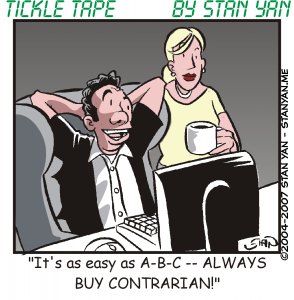Trading is synonymous with risk. Shorter-term trading isn’t about using a buy-and-hold strategy and minimizing risk by holding an investment over years. Short-term traders capitalize on volatility. Prices fluctuate rapidly. Trading is risky and what will happen in the short-term window a trader works with is uncertain. Humans have a natural and powerful aversion to risk, however.
People have no trouble taking a sure win, but when it comes to taking a loss, they hesitate. They don’t like accepting losses and will do anything to avoid taking them. They will gamble in the hopes of avoiding a loss, such as when a trader holds on to a trade in which losses continue to mount. They will pretend that losses aren’t really there, as illustrated by traders who like to keep losses on paper instead of realizing them. However, losses, risk, and uncertainty can’t be avoided if one wants to trade like a professional. It’s vital to come to grips with these issues, accept them and trade freely despite them.
Risk aversion is adaptive most of the time. Minimizing risk will help you survive. Risk is a part of everyday life. We take risks every day, such as when we drive to the grocery store or take our children to school. It’s often wise to take reasonable precautions to protect our interests. When you drive down the street, for example, it’s prudent to wear seatbelts and be careful to drive at a safe speed. When we trade, it is similarly prudent to take precautions, such as controlling risk on any given trade and trading with a detailed trading plan. Adverse forces may go against your trading plan, and unless you protect yourself, you run the risk of taking substantial hits to your account balance.
There’s a psychological advantage to protecting your interests, and when you know that you have a safety net, you’ll be able to deal with risk and uncertainty in the markets more easily. Taking precautions eases some of the pressure. If you know that the worst-case scenario is something you can deal with easily, you’ll feel more at ease. You’ll feel a sense of freedom. Acting under pressure often leads to trading errors, such as misinterpreting market conditions or making impulsive trading decisions. Proper protection gives you the time and opportunity to think more clearly. You can make a calm, thorough survey of all possibilities, and take appropriate action. Risk management provides not only protection from financial loss but also gives the trader a psychological piece of mind.
The possibility of losing money is difficult for most people to accept, but winning traders don’t let this tendency interfere with their ability to make money. They protect their assets as much as possible, and once they know they have done everything possible, they trade freely and effortlessly. They decisively execute their trading plans, and should they fail, they just take the loss and move on. They don’t get bogged down. By accepting risk and uncertainty, they are able to trade profitably and consistently.


